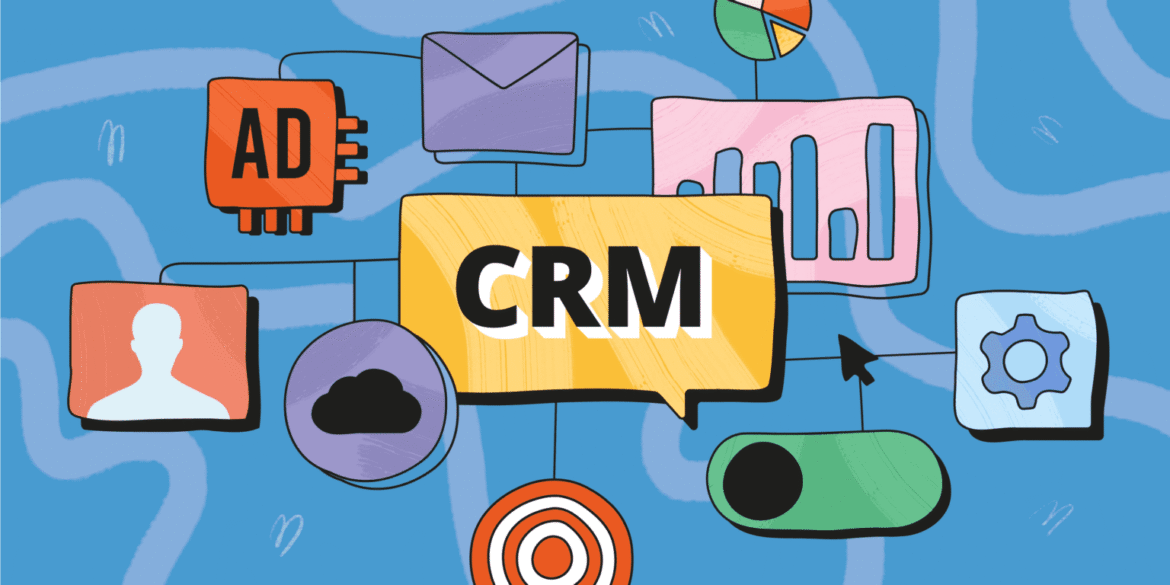In today’s competitive business landscape, managing customer relationships effectively is crucial for long-term success. One of the most powerful tools available to modern businesses is Crm Software. This technology streamlines the process of tracking, managing, and nurturing customer interactions, ensuring companies can provide personalized service while improving operational efficiency.
What is CRM Software?
CRM, or Customer Relationship Management software, is a digital platform designed to manage a company’s interactions with current and potential customers. It consolidates customer information into a single system, allowing businesses to monitor communication, track sales, and optimize customer engagement strategies. By centralizing data, CRM software reduces redundancies, improves collaboration, and provides actionable insights that drive business growth.
Key Benefits of CRM Software
1. Centralized Customer Data
One of the most significant advantages of CRM software is its ability to consolidate customer information. From contact details and purchase history to communication records, all data is stored in a single, easily accessible platform. This ensures that every team member has the information they need to serve clients effectively.
2. Improved Customer Engagement
With a comprehensive view of each customer’s journey, businesses can tailor communication and offers to meet individual needs. CRM software enables personalized marketing campaigns, timely follow-ups, and proactive support, fostering stronger customer relationships.
3. Enhanced Sales Performance
CRM tools track every stage of the sales pipeline, from lead generation to closing deals. Sales teams can prioritize prospects, monitor performance metrics, and identify bottlenecks, leading to higher conversion rates and increased revenue.
4. Streamlined Communication
CRM software often integrates with email, phone systems, and social media platforms, creating a seamless communication channel. Automated reminders, follow-ups, and notifications help ensure no opportunity is missed.
5. Data-Driven Insights
Advanced reporting and analytics allow businesses to understand customer behavior, forecast sales trends, and measure campaign effectiveness. These insights inform strategic decisions and enable continuous improvement in customer relationship management.
Practical Applications of CRM Software
Sales Management
CRM systems track leads, deals, and interactions, helping sales teams manage pipelines efficiently. Automated workflows and notifications ensure timely follow-ups, improving the chances of converting leads into loyal customers.
Marketing Automation
Marketing teams can use CRM software to segment audiences, launch targeted campaigns, and measure engagement. By understanding customer preferences, businesses can deliver relevant content that resonates with their audience.
Customer Support
CRM software centralizes support tickets, chat interactions, and feedback, enabling faster resolution of customer issues. A well-managed support system enhances customer satisfaction and retention.
Task and Project Management
Beyond customer interactions, CRM tools assist in managing tasks, assigning responsibilities, and tracking progress. This improves team collaboration and ensures projects are completed on schedule.
Best Practices for Implementing CRM Software
Define Clear Objectives
Before implementing a CRM system, identify business goals and what you want to achieve. Whether it’s improving sales efficiency, enhancing customer support, or streamlining marketing, clear objectives guide successful adoption.
Ensure Data Accuracy
The effectiveness of CRM software depends on the quality of the data it holds. Regularly update customer information, remove duplicates, and verify details to maintain accuracy.
Train Your Team
A powerful CRM system is only as effective as the team using it. Provide comprehensive training to ensure employees understand its features and can leverage them to improve customer relationships.
Integrate with Existing Systems
Integrating CRM software with other business tools, such as accounting, email marketing, or e-commerce platforms, enhances workflow efficiency and ensures a seamless data flow across the organization.
Monitor and Optimize
Continuously analyze CRM performance metrics to identify areas for improvement. Regularly reviewing processes ensures the system adapts to evolving business needs.
Challenges and Considerations
While CRM software offers numerous advantages, businesses should be mindful of potential challenges:
- User Adoption: Employees may resist changing existing processes. Effective training and communication are key to successful adoption.
- Data Security: Customer information must be protected against unauthorized access. Choose CRM platforms with robust security measures.
- Customization Needs: Off-the-shelf CRM systems may not fit all business models. Selecting a customizable solution ensures it aligns with specific operational requirements.
Future of CRM Software
The future of CRM software is increasingly shaped by artificial intelligence (AI), machine learning, and automation. Predictive analytics, sentiment analysis, and AI-driven recommendations are transforming how businesses understand and interact with their customers. As technology evolves, CRM systems will become even more intuitive, enabling hyper-personalized experiences and smarter decision-making.
Conclusion
CRM software is no longer a luxury but a necessity for businesses seeking to maintain strong customer relationships and drive growth. By centralizing data, enhancing engagement, and providing actionable insights, it empowers organizations to operate efficiently while meeting the evolving expectations of their customers.
Implementing a well-structured CRM strategy ensures that businesses can foster loyalty, increase sales, and stay competitive in today’s fast-paced market. When combined with best practices, careful planning, and continuous optimization, CRM software becomes an indispensable tool for achieving long-term success.
